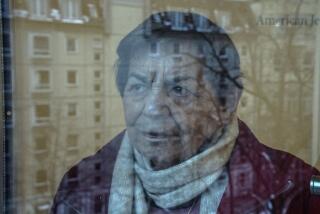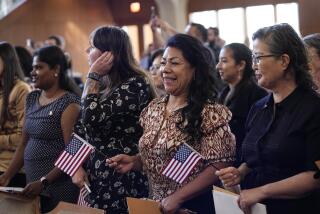Returning to work, warily
The Sadriya market has been cleaned of the pools of blood and the scattered flesh. It looked almost normal Monday as Kumail Ali Mussa stood in his car accessory shop on the street where 16 people had been killed the day before.
It was 2:30 p.m. and the market, which once stayed open until sunset, was shutting down. The fact that it had opened at all was a minor miracle. This was the fourth major bombing there. The previous ones, in December, February and April, killed more than 320 people.
Mussa resigned himself to coming back to the decades-old commercial center. He had gone home in shock the previous night and awakened in the morning afraid he would not survive the next attack.
But with a wife, children and parents to feed, he didn’t have the luxury of shutting down. “What else could I do?” he said numbly. “I don’t have a degree in anything, and even then, what’s the difference? People are dying indiscriminately regardless of where they are in Baghdad!”
Before the first big car bombing struck in December, Mussa had marveled at how the market was thriving after more than three years of war. “You couldn’t even walk without getting crushed or bumping into another person,” he said.
On Monday, three quarters of the shops were closed before 2 p.m. Anyone who remained was locking up or ducking the afternoon sun beneath the porticos of old yellow-brick buildings, some dating to the British mandate.
Sadriya Street, which stretches more than 350 yards, was sealed off at its northern end with 6-foot-high concrete barricades after the February bombing. Although some loyal customers still come, the combination of sectarian warfare and the gruesome bombings has scared most Iraqis away from the central Baghdad markets, where Sunnis, Shiites and Kurds had conducted business together for more than a century.
Merchants have opened a wholesale market near Mussa’s home in the west Baghdad district of Hurriya. Other neighborhoods have done the same, capitalizing on shopkeepers’ fear of downtown Baghdad’s Sadriya and Shorja markets. But Mussa, who inherited his shop from his father, said he was afraid he would lose his customers if he moved the business to Hurriya.
“I am known here. I have a list of customers, and they probably wouldn’t be able to make it all the way to west Baghdad. Besides, I also cater to many customers who come from the various provinces. They arrive at the city center, promptly procure what they need and get a ride back. They would rather find another dealer if I were to close shop here.”
Ismail Mohammed, 57, is one of Mussa’s longtime customers. He has his own auto accessories store in the southwest Baghdad neighborhood of Bayaa and relies on Mussa for his affordable merchandise. He said he doubted he could eke out a living if he stopped buying in Sadriya.
Mohammed was walking up to the Sadriya market Sunday as the blast ripped into the crowded area. He described watching a wooden dolly, hiding the bomb, go up in smoke near a police checkpoint.
“A few meters and I would have been either killed or crippled,” Mohammed said. He pointed to the rust-colored streaks on his white shirt, stubborn remains of the blood he had tried to wash out.
Mohammed picked up a bag of metal brackets from Mussa and left. Mussa decided to stay open until 5 p.m.
By 3, the market was almost deserted. One of the few holdouts was a Kurdish cigarette vendor, Ahmed Jihan. The 29-year-old was standing beneath a portico, selling 10 brands of cheap smokes with names like Miami and Pine.
Jihan said the force of Sunday’s blast knocked over his stall. Still, he was working late. He didn’t have to worry about traveling Baghdad’s treacherous roads -- he lives in the neighborhood.
“Many merchants have closed their shops for good, and the remaining few still work here because they have nowhere else to go or they actually live nearby,” he said, his voice flat, betraying no emotion. “All of Baghdad is dangerous. All of Iraq is dangerous, including Kurdistan.”
He has lost faith in the U.S. and Iraqi militaries, which have failed to stop the bombings.
“This government is nothing more than ink on paper. Even the concrete barriers that you see were set up by the Americans and not the Iraqis.
“If the government cared more, they would have searched people and vehicles more thoroughly rather than just standing idly at the checkpoints smoking their cigarettes and talking on their cellphones.”
More to Read
Start your day right
Sign up for Essential California for news, features and recommendations from the L.A. Times and beyond in your inbox six days a week.
You may occasionally receive promotional content from the Los Angeles Times.






